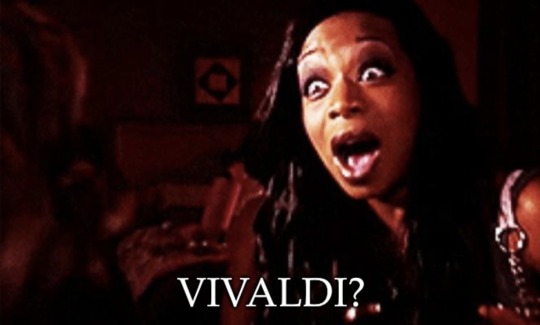Text



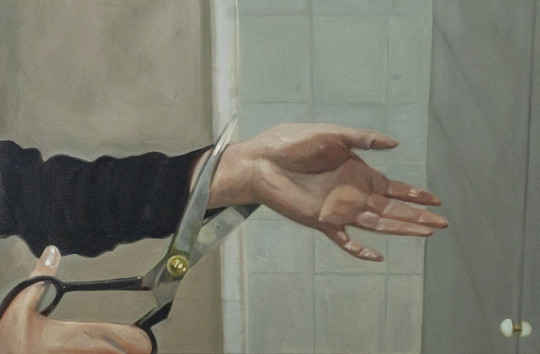


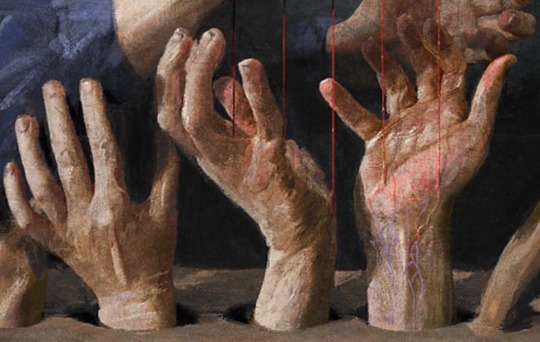


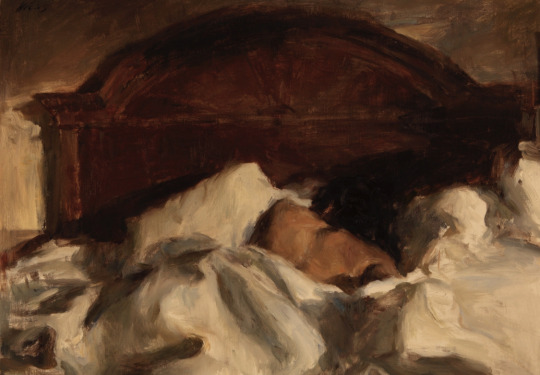
i don't know if i’ll last until tomorrow. it's such an arduous task to always bottle it up
jeanette winterson // chen chen // the wallows // shannon cartier lucy // traci brimhall // mary oliver // eliran kantor // margaret atwood // the wallows // ron hicks // gus dapperton
588 notes
·
View notes
Text
me, at age 13: these fucking classics are EMPTY. The Great Gatsby is a box with nothing in it.
me, age 26: The Great Gatsby is the last and greatest crime story that will ever be written in English. It is about time as a trap, greed and opportunism as a trap, technology as a trap. It is about the waste of effort and suffering and the shrug, the cycle of passing the buck without ever owning up to anything. It is about going down into the lower depths, and the possibility of death there being the lesser evil; but there is no escape, and the law of entropy will not allow anything to be created there, only consumed. It is about the things that do not love us, or cannot love us: money and time and our destinies and the laws of the universe. It is about Jazz and about the colors of yellow and green. It’s a cosmic horror story about inability.
2K notes
·
View notes
Text
Gatsby: An American Myth is a brilliant literary adaptation. it asks: if we bring to the forefront many of the parts that are implied or hinted at in the text, how does that change how we view it?
if Nick and Jordan are undeniably queer, if Gatsby is actually white-passing and not white, if Myrtle and George’s briefly-possibly-alluded-to lost child is actually talked about, how much sharper does the book’s critique of the “lost” American dream get?
this musical refuses to let you ignore the nuances of these characters that were (more or less) *already present* in the book.
Daisy is absolutely a victim, but she is *also* a wealthy white woman who is willing to (literally) throw a working class woman under the bus (car) for her own safety, and who is willing to let a man of color face the consequences of her actions. Tom tricking George isn’t exclusively about getting rid of Gatsby, but also about a wealthy white man setting two marginalized characters against each other so that he doesn’t have to deal with them.
when we get to the end, when we meet Gatsby’s dad and learn that he’s Indigenous, when we contend with how disproportionately the violence impacts marginalized people, the conclusion is no longer that the American dream is lost or broken, but that it was a stolen thing to begin with.
I am sure there are political critiques I (or others) could / will make, but on first impression, I am blown away by how far it went with displaying the horror of the American machine.
358 notes
·
View notes
Text
REVIEW
Gatsby: An American Myth (Welch, Chavkin, Bartlett, Majok, & Tayeh; American Repertory Theater)
Something that most adaptations of Gatsby get wrong, whether film or stage, is the treatment of characters as archetypes rather than individuals. Symbolism drowns out most genuine attempts at capturing emotional connections and conflicts of personality. They forget that this story is not only a failure of the so-called American Dream; first and foremost, it’s a tragedy of failed roles and relationships. Almost every one of the players is attempting to be someone they are not, and even as they reach for what they believe they should want, they reveal with increasing fervor what they actually want. This is the heart of what makes Welch’s new adaptation so devastatingly, disarmingly unique, so true to its source.
The set design is literal wreckage. Crushed and warped automobile chassis scaffold the moving staircases, and concealed trap doors. The backdrop shows no clear incorporation of the infamous Eckleburg billboard; rather, it is made up of a dotted grid resembling headlights. These play out effects ranging from a downpour to camera flashes to, briefly and only once, a pair of eyes that make no effort to hide behind the owlish frames of glasses. The only thing infusing this jagged framework with meaning is the people who move through it.
The lighting design works with the set’s incongruences, deepening or excavating shadows as needed. The brightness, when it flares, is blinding. Jewel tones either enhance or diminish a costuming scheme that is composed of either very pale or very dark shades, no in between. And whether it’s the post-apocalyptic black and gray cabaret garb of the ensemble or the wealthy protagonists’ pale suits or the gunmetal and gray denizens of the wasteland, everyone’s trouser and skirt hems are conspicuously rimed with reddish dust. The visual effects are nearly impossible to describe without sounding like I had some kind of desperate fever dream.
So far, I realize that these descriptions of the set and lighting design sound like this production is about to fall into the trap of overplaying symbolism, but please bear with me. With all of that established, I can focus on what’s truly extraordinary here, what’s meant to and does shine unhindered. The acting, musicianship and vocals are all so precise that it was hard for me to believe this show is still in previews. It feels Broadway ready, West End ready, major international tours ready. If I was the production crew, I’d turn this loose on a massive scale from the get-go without a second thought.
Much like with Hadestown, the musicians are not down in an orchestra pit. They’re characters in their own right, present on the stage from start to finish on tiered risers that run up from the center on each side from one of the catwalks. I’m sure Chavkin’s involvement as director has everything to do with why this show feels so much like, moves so much like Hadestown. The company is on an equally small scale, about 23 - 25 people including the principals.
Costuming among the ensemble is delightfully gender agnostic. I mention a cabaret aesthetic earlier in this review, and I’m not kidding. If you had shown me the ensemble costume designs without showing me the principals’ designs, I would have assumed I was looking at a Cabaret revival. They’re the most talented dancers I’ve seen occupy one stage in more than a decade. The choreography relies on movements in eerie unison for a significant portion of the show, but not without allowance for individual flair within those constraints. The guy sitting next to me, when I spoke to him at the intermission, said he works as a choreographer in regional theater, and he’d never seen anything like this. I couldn’t agree more; the dancing is singular, and as impressive as the musicianship is, the dancing and unusual body movement are maybe the greatest achievements of this show on the living, breathing end of things. I could have watched the dancers for those three hours without any dialogue or vocal intervention and still understood the story. That takes so much fucking doing.
As for the principal cast, they’re constantly among the ensemble; when I say these are all triple threats in the purest sense of that terminology, I really mean it. You always expect a few of the principals to be less dance and movement focused, more polished on the acting and singing side, but this show gives you terrifying proficiency from every angle. Even the guy playing Meyer Wolfsheim is at the center of what I think is the most memorable dance number in the piece. I’ve just never seen such versatile principals all in one production. What’s even more extraordinary is that I had never heard of or previously seen any of them, and that takes some doing given how much live theater I’ve consumed in several decades of life.
Ironically, the musical composition is the one aspect of this production on which I’ll be spending the least time. I need not tell you why Welch and Bartlett were perfect for this job. They understood the assignment, and then some. There’s not a single weak number among the track listings, and I desperately hope they release a recording soon. The standout numbers all have something in common: they showcase Soleia Pfeiffer as Myrtle Wilson. You can tell that’s the role where Welch sank most of the sound that’s considered her signature style. I don’t even need to describe it; you already know what I’m talking about. What’s impressive otherwise is the restraint, the lack of over-reliance on that signature style.
The principals are fucking perfect. I’ve kept this review tautly professional without meaning to thus far, but from here on out is where I start bleeding feels all over the post. If you don’t already know who my blorbos are due to my writing history with a Gatsby-related novel (The Pursued and the Pursuing, 2021), you’re going to know by the time you’re done reading this. You’re going to know exactly who I love and why, who I hate and why, who I ship and why. But you’ll also know that I approach all three of those elements from a place of enjoying every moment of those characters, even the ones I hate. Nobody’s performance put me off or struck the wrong tone when taken in context of the novel and how the tragedy of how their relationships play out.
For a long time, I’ve been saying that there are certain support roles, certain sidekicks, that make or break the higher-profile person to whose side they’re stuck, ride or die, until the bitter end. Horatio is a great example that I’ve ranted about before; if your Hamlet production has a lackluster Horatio, then it doesn’t matter how good the Hamlet is. You have nothing if you don’t have the binary star system at the heart of that harrowing universe. I’ve seen other adaptations of Gatsby consistently fall apart because Nick Carraway is treated like the kind of voyeur who doesn’t matter, the kind of voyeur who serves as the audience’s eyes and ears, and nothing else. Anyway, this is all to say: Ben Levi Ross as Nick might be the most compelling argument I can make for the fact that the creative team behind this show understood the assignment. He’s awkward, warm, sincere, and reactive in all of the ways you need Nick to be. He’s not a passive observer; he’s in the middle of everything, and he knows it. There’s a self-deprecating response he makes when one character, Jordan if I’m not mistaken, quips that maybe he’s the reason for Gatsby’s parties for all he knows. “Maybe I am,” he says, and the tongue-in-cheekness belies a gutting meta-sincerity. We believe Daisy is the point, Gatsby believes Daisy is the point, but what’s borne out every breathtaking moment of this production is that Nick is the point. He always was. He’s also given his due as a gay man in context of the story for the first time ever. I might make some folks mad when I say Nick has always been gay; I’m going to point you to Myrtle’s apartment party and the hookup with Mr. McKee as textual evidence in the novel. The kiss with McKee, the hookup with McKee, is unapologetically here. His lack of belonging everywhere else he’s ever been, because he is gay, is unapologetically here. One of the most memorable numbers in the show hinges on the hope feels at being able to be himself in New York. Queer fans of Gatsby have been waiting a long time for this. Anyone who’s read the text closely and understood him has been waiting a long time for this. I’ve been waiting several decades as a reader, and I would’ve waited forever to have Nick so fully, lovingly realized.
One of the other things that Gatsby adaptations have persistently gotten wrong is the titular character himself. The invention of Jay Gatsby hides the underlying James Gatz, makes it feel as if that old self is truly subsumed, as if it never mattered. But Isaac Powell gives us a Jay who’s exactly as he should be, who can’t hide beneath his own attempt at artifice and reinvention worth a goddamn. He’s young (as young as Nick; they’re 32 and 30 respectively both in the novel and here), painfully earnest, and just barely keeping a handle on the criminal shit he’s had to do in order to get where he is. When he says old sport to Nick, it’s not an affectation; when he says it to Tom, it becomes a biting insult. This is a Jay who knows where and why he’s vulnerable; he latches onto Nick like a not because he sees a man close to Daisy that he can exploit, but because he sees another young man who’s equally vulnerable, equally an outsider, equally haunted by the things they had to do in the war. From the moment they meet, they are almost always touching—a hand on the shoulder, on the back, getting in social harm’s way for each other, eyes seeking each other without cease in the most crowded of settings. When Jay takes Nick to lunch to meet Wolfsheim (who has in this production taken on the function of Dan Cody as well), it’s not to have somebody else vouch for the artifice of who Jay Gatsby is. It’s taking Nick to meet his fucking father-figure, and all of the messy, sincere “if you hurt my boy, I’ll kill you” sentiment that Wolfsheim aims at Nick was the moment I knew just how much the Nick’s loss by the end was going to hurt. Jay’s love for Daisy is a ghost of itself, even if as painfully earnest as everything else about him. Meanwhile, his attachment to Nick is so disarmingly genuine from the start that you understand the true tragedy you’re about to watch untold: these men who need each other, maybe even were made for each other, each prove unable to step outside their parallel distractions from what they truly are to each other. Jay’s interactions with Daisy and Nick’s interactions with several male and/or gender ambiguous members of the ensemble have something in common, which is a shocking level of physicality. This show had an intimacy coordinator; that’s the level of no holds barred we’re talking about. When you look at Tom and Myrtle, you can see why that was merited, too.
Speaking of Tom (Cory Jeacoma), the treatment of him here is every bit as scary as it should be. There’s no attempt to make him palatable, unlike what I’ve seen done with him in other adaptations. He towers over everyone else in the cast, I mean everyone, to a physical degree that’s uncomfortable. The way his wife, lover, and friends all flinch when he gets too close to them speaks volumes to the fact that he’s an abuser in every sense of the term. Even Nick, the prodigal college friend from Yale, is on eggshells around him (which, by the hotel blowup at the end of the show, becomes a sneering, reckless contempt, one of the driving forces that drives Nick to put himself between Jay and Tom whenever real harm is on the table). At the same time, this is a Tom who sincerely loves his wife and was only ever using Myrtle as a fling. You can tell he never meant any of the promises he made Myrtle. When Daisy tells him she didn’t stop the car on purpose, it’s as if his wife’s unapologetic act of manslaughter (“It was her or me!”) is the thing that wins him back. They aren’t careless people; they are people who consciously choose, day in and day out, to use others until they’re bored or done with them. The ruthlessness of Tom and Daisy as a couple is impressive, played up to a level that I feel more adaptations should do without fear of exaggerating the text.
As mentioned above, Daisy (Charlotte MacInnes) is no delicate, nervous creature who can’t help her actions under duress. She knows what she’s doing every bit as much as Tom knows what he’s doing. They use people, hurt people because they get bored and restless and enjoy it. I respect a Daisy who’s in control of her actions every step of the way even if I don’t like her; it’s better than trying to depict her as weak and at the mercy of the men around her. She’s a pragmatist and a survivor. So many of her songs are about choices and being conscious of those choices. She is a person you should fear every bit as much as you fear her husband, and even Jordan knows she’s not safe in Daisy’s orbit.
As Jordan, Eleri Ward is one of the neatest personalities on stage. Like Tom, she’s noticeably taller than most, which gives her a commanding physical presence. She has no romantic interest in anyone; I fucking love that this production show her and Nick bonding on the basis of being queer and tired of everyone else’s shit. This is a more likable, relatable Jordan than I’ve seen in the past. This is a Jordan whose relationship to Gatsby is much more familiar and warm, much more akin to the friendship she forms with Nick. In fact, the queer-and-tired vibes that roll off several of the principals in this production are palpable.
Myrtle and Wilson (Matthew Amira) aren’t always played as effective foils for Daisy and Tom, but here? They unquestionably are. They do actually love each other in spite of the things they’ve done to hurt each other, and it’s a constant dance of daring each other, challenging each other. The most memorable duet in the entire show is between them, during Act II. The confrontation is positively electric. These are two people with deep, complicated history. Of all the couples in the show, they feel the most real, the most alive. It makes the loss of Myrtle so much more wrenching; she’s not just a plot device emblematic of the bad choices they’ve all been making. She’s not shallow or frivolous or anything like that. She’s a shrewd woman with complex motivations, and for the first time ever I find myself loving her and caring what happens to her. She’s thrust even further into the action in that one of her part time gigs is working as a maid at Gatsby’s parties, a conceit that works shockingly well and hastens the devastating consequences of her affair with Tom.
I’ve made mention of Meyer Wolfsheim’s (Adam Grupper) uniquely enhanced role previously, so I’d be remiss if I didn’t comment on him again. This is a man who does, in fact, seem to give a shit about Jay above and beyond using him as a tool in his criminal empire. It’s not necessarily a healthy father-son dynamic, but Wolfsheim is usually played as ruthless, opportunistic, inhumanly calculating. Here, he’s a charming, but unquestionably dangerous man moved by a young soldier’s plight. He seems conflicted between his love for Jay and his need to have Jay continue to hold the party line within their business relationship. Wolfsheim is deeply conflicted about Jay in a way that I haven’t seen any Wolfsheim be played previously. And, as I mentioned earlier, the actor has a showstopper of a song and dance number. That may be the #1 “I wasn’t expecting that, but I’ll take it!” moment for me in this show. And I say “may be” only because the moment that truly stopped my heart, will stay with me until everything else fades from memory, is perhaps only understandable in the context of my engagement with the text of Gatsby as a writer of transformative works.
Daisy’s and Tom’s daughter, Pam Buchanan doesn’t always appear in adaptations because she’s a toddler. Even in the novel, she a throwaway mention plus a single scene near the end where the nanny brings her out to meet Jay and Nick. She’s most often left as a throwaway mention without even grave of the scene where she appears. The scene in the novel, however brief, is memorable—and has been captured in all its fragile beauty for the first time in this adaptation. Jay and Nick both pay bewildered, wondering attention to this kid when she’s brought out. Jay drops to his knees and takes her hand when she greets him while Nick looks on in a moment of singular focus on both of them. The child who plays Pam here has a spark, an expressiveness that made me choke up even though she’s only on stage for a few minutes, if that. The tableau is one in which you can feel the shock of reality, however brief, touch on these men—Daisy’s and Tom’s reckless actions may yet do harm to someone who’s barely even begun to live her life, but who is just conscious enough to be a participant in it. They recognize that they, like this child, are probably in for a word of ruin—and that they have let it go on for so long that there’s now nothing they can do about it. For me, the deepest tragedy was watching Nick and Jay throw off that moment of heartbroken, horrified recognition prompted by Pam and return to the parts they’d decided to play out until the moment one of their hearts stopped.
Speaking of grief, of Nick’s grief since he’s the one who loses so much: there is only one person who loses more, and that’s Mr. Gatz, Jay’s father. They preserve his arrival at the house when Nick is the only person who stays around to carry out Jay’s funeral and burial. And when he arrives, the visceral shock of seeing his dark skin, braids, and beaded elements of Native regalia in juxtaposition with his otherwise period-typical Western garb underscore the tragedy of what young Jay was running away from, of what he never quite succeeded in erasing from himself. The burial scene shows Nick reverently bringing several of Jay’s folded shirts from the house and handing them down into the grave to Mr. Gatz, who places them reverently as possessions to accompany his son into thereafter. The cultural ramifications are all at once understated and devastating. Nick has moments with each of Jay’s father figures that are among the most complex and moving in the show. The program does not make clear the name of the ensemble member who takes on this most memorable of all Mr. Gatz appearances, and this erasure in and of itself is both unfortunate and telling. This is a world that never belonged to the majority of those who inhabit it, and Nick realizes it with heartbroken clarity after having this final interaction. Even though he’s an outsider, he’s part of a world that has erased and betrayed the man he loved so much at every turn.
The closing number, “We Beat On,” felt like it needed something more, but it utilized the final line of the novel to a deeply moving effect. The lights go down suddenly as the last word is sung; it feels like the song is half finished. When the lights came up, Nick and Jay were center stage in each other’s embrace, just withdrawing from each other as the entire company transitioned into final bows. That’s how I’ll remember them, always: touching even when they’ve already lost each other, borne ceaselessly back into each other’s arms. If Nick is Orpheus, then I have no doubt that he, too, will tell this story again and again until someday, somewhere, something gives.
566 notes
·
View notes
Text
I still don’t understand how so many of adaptations of Gatsby got Nick So Wrong. What I can condense it down to, however, in many senses, is that Nick is viewed as a lens to this world, a voice to the story, instead of a character in it. directors and writers misplace the audiences naivety to the likes of Gatsby and the Buchanan’s and the environment and instead project it on to Nick.
he is treated as our entry-way into this world, like a baby with new eyes, as opposed to someone who is Amongst everything, yet outside it.
Within and without.
I’ve said it before and I’ll say it again, but Nick is passive, and he is cynical, but he isn’t naive and he knows that by listening and observing and paying attention that he’ll learn far more than the people around him, one of those reasons he feels he can differentiate himself from the Buchanan’s because they’re so self-absorbed where he feels he isn’t.
His quietness, and his unwillingness to be an active participant in so many things isn’t quite calculated so much as observant because he doesn’t think of himself as One Of Them. The only context he considers himself the ‘type’ of person that the Buchanan’s or Gatsby is, is in relation to them being of the west, and therefore allegedly unable to adapt to eastern life.
His quietness isn’t ignorance, it’s not naivety. It’s an awareness, a cynicism, an observation, the view of one who believes themself to be on the outside and therefore impartial and able to pass judgement.
I think that’s what a lot of adaptions miss, instead just using him as the viewers eyes, essentially
28 notes
·
View notes
Text




"Where were You, God?", Arthur Meschian (translated by Tathev Simonyan)
433 notes
·
View notes
Text
if we could read minds I still don't think we'd understand them.
156K notes
·
View notes
Text
i will sexualise the horrifying and find the horror in the sexualised
20K notes
·
View notes
Text
it's always very entertaining when someone is so afraid of dying that they decide they're going to defeat death itself and in the process of pursuing this entirely reasonable and achievable goal end up inventing Death Two
15K notes
·
View notes
Text
was playing "fetch" with the ocean today by tossing stones into it and watching them wash back up with the tide a few meters away, and it got me thinking about grief and the things we carry with us even after we lose them
34K notes
·
View notes
Text
"How do you write such realistic dialogue-" I TALK TO MYSELF. I TALK TO MYSELF AND I PRETEND I AM THE ONE SAYING THE LINE. LIKE SANITY IS SLOWLY SLIPPING FROM BETWEEN MY FINGERS WITH EVERY MEASLY WORD THEY TYPE OUT. THAT IS HOW.
129K notes
·
View notes
Text
The Last Dinner Party: Prelude To Ecstasy (2024)




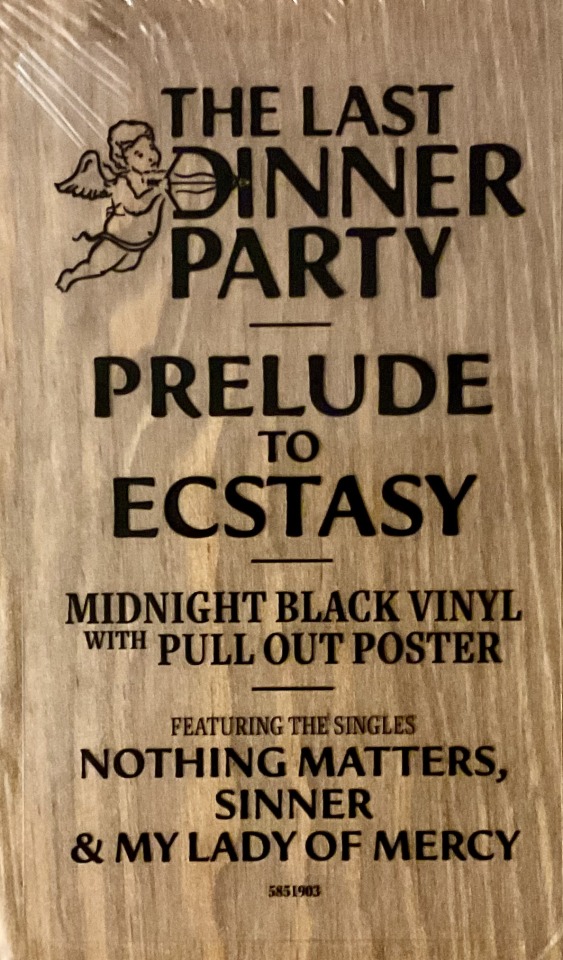

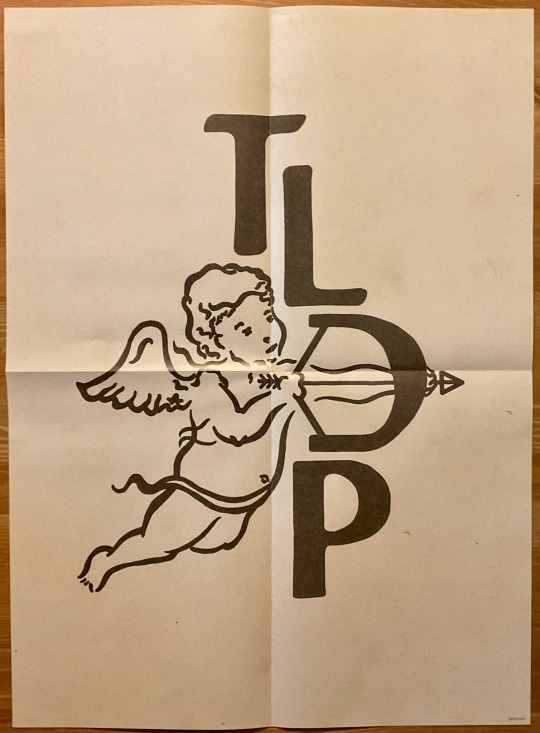
Signed copy of the “Midnight Black” variant of “Prelude to Ecstasy.” Signed by all 5 band members.
Island Records
98 notes
·
View notes
Text
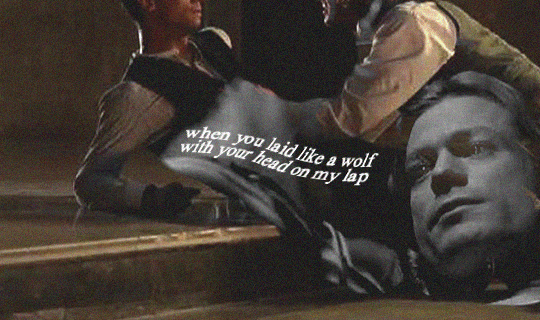
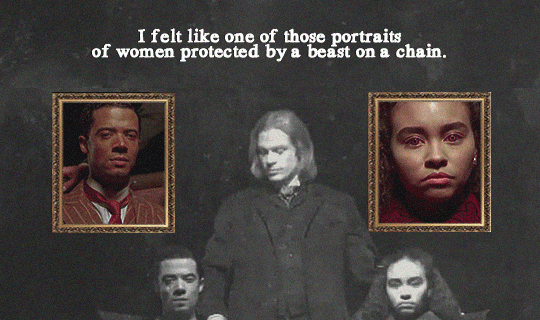

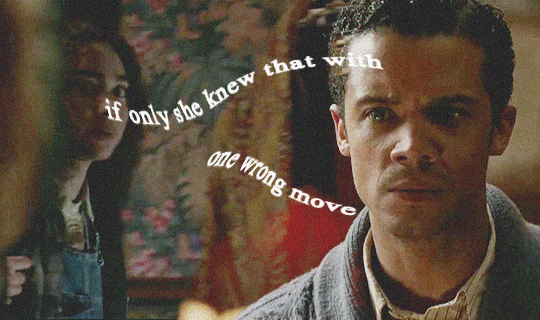
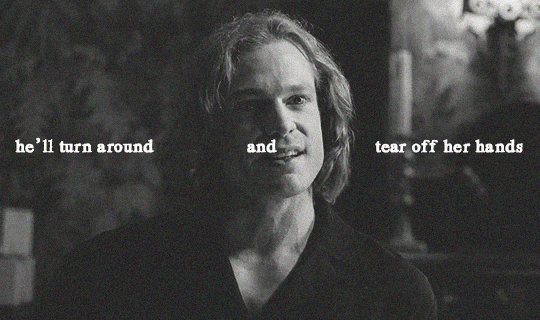
Let my last words be our last dance
I'd die for you, no questions asked
If anyone could kill me
It probably would be you
portrait of a dead girl, the last dinner party
192 notes
·
View notes



